6 things I wish I knew before buying an air purifier
Key considerations to know before making the investment
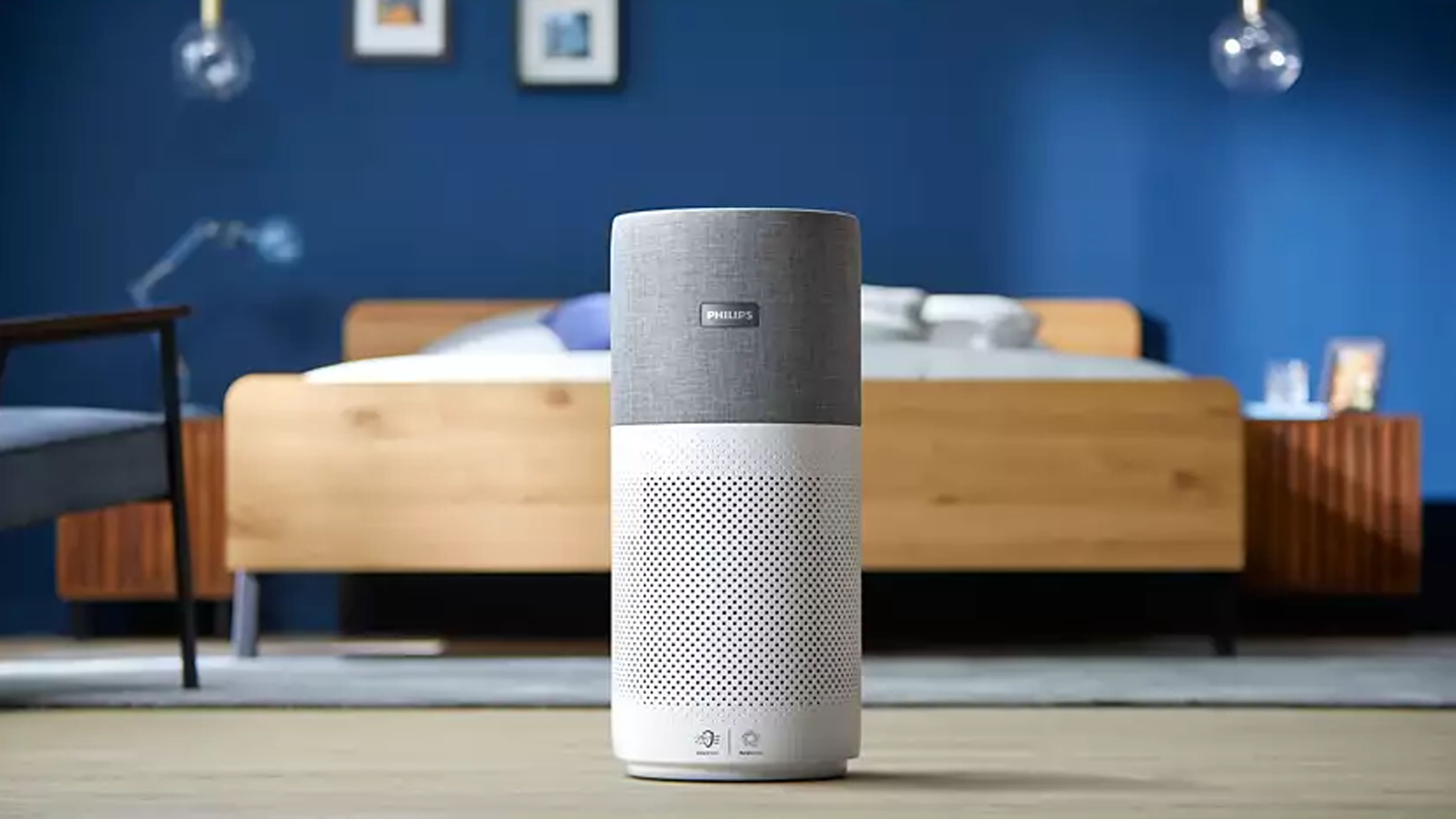

Air purifiers are wonderful investments, designed to improve the air quality inside your home and filter the likes of dust, pollen, pet dander, and odour to make for a more desirable indoor environment. But, despite all of the positives we can spend all day raving about, there are, however, a few things I wish I knew before buying an air purifier.
Finding the best air purifier to suit your needs can be a task and a half, especially considering just how many there are available on the market. While it's all well and good to simply purchase the most recommended of the bunch, there's a lot more customisation to air purifiers that tends to get overlooked before people make the purchase.
Although air purifiers do pretty much the same thing, if you're buying an air purifier to help with allergies or want to invest in a model to help you sleep better, there are different features you ought to look out for that will make all the difference.
With this in mind, we asked air treatment experts for their take on the things you should know before buying an air purifier, to ensure you make a savvy investment ideal for your specific needs.
Things I wish I knew before buying an air purifier
'The use of air purifiers has really become common nowadays because they are considered a smart way to purify the indoor air from any pet dander, dust and other pollutants, which is especially important with people with pre-existing respiratory conditions and allergies,' begins David Miloshev, appliance technician at Fantastic Services.
'However, for these devices to help maintain the indoor environment healthy, there are also some considerations to keep in mind, which people aren't commonly aware of.'
Before buying an air purifier, experts urge you to consider the following factors.
1. Being specific about its purpose
Before purchasing an air purifier, it's important to understand exactly why you want to buy one. Being able to pinpoint the reasons for buying an air purifier can help you make an informed decision on the type of air purifier you should buy.
This is because there are specific air purifiers to help with hay fever and also certain air purifiers that help with mould because of the different filter offerings available.
'For instance, if you suffer from allergies, a purifier with a HEPA filter is ideal. If you are primarily concerned about odours, look for a model with an activated carbon filter,' advises Joshua Warren, AO.com's air treatment expert.
However, if you're wondering whether an air purifier cools a room, you'll be disappointed.
2. Finding the right size
Air purifiers come in all sorts of shapes and sizes, spanning from itty bitty models that are perfect for improving air quality in a small bedroom to larger models for bigger family households.
Considering how big an air purifier is before purchasing one makes a huge difference because it'll determine how effective it is at filtering the air depending on where you put it.
'For example, if you need it for a small room, it'll be unnecessary to purchase a large device because it'll consume too much electricity (ultimately running up the cost of running an air purifier). On the other hand, a small air purifier, won't clean the air effectively if you put it in a large room of about 55 or 90 square meters. For such space, you’ll need a large device,' says David.
3. Considering noise levels
Depending on how you plan to use your air purifier, considering noise levels before buying an air purifier is crucial.
'If you're planning to have your air purifier in your bedroom or have it on in the background while you work, checking the noise level is crucial. The number to look out for here is the dB(A) score, and the lower this is the better,' explains Lars Dunberger, technology development manager at Blueair.
'For any devices designed to be used in the bedroom, it's also worth looking for the Quiet Mark certification, which is only awarded to the quietest devices on the market.'
In fact, Quiet Mark tests a large variety of air purifiers, with only the quietest and least intrusive sounding models earning the coveted certification.
'When Quiet Mark tests or verifies home appliances, we consider a variety of factors, including the product's sound quality,' says Poppy Szkiler, Quiet Mark's CEO and co-founder. 'Several appliances can have the same decibel level, however, if any of these products have an unpleasant tone or frequency it will not pass for Quiet Mark Certification.'
So if noise is your top consideration when buying an air purifier, it's worth checking if that air purifier deal you've got your eye on is Quiet Mark certified before haphazardly purchasing it.
4. Testing for ozone production
Speaking from personal experience, ozone production is something I didn't even know I had to consider when buying an air purifier. I was under the impression that all air purifiers simply purified air (genius, I know).
So, when I switched on my air purifier for the first time and was met with a smell akin to harsh cleaning products, I was utterly confused. Turns out it was ozone. Needless to say, I quickly returned it. If you're wondering why your air purifier smells, this could be a reason.
'Even though air purifiers are devices meant to purify air, some of them can still be harmful because they can emit ozone, which harms your lungs. To avoid this, look into the specifications and choose a product that has been tested and proven not to produce ozone,' advises David.
5. Checking the clean air delivery rate
The clean air delivery rate (CADR) is one of the most important aspects to look at before buying an air purifier, yet is often the most overlooked. This is essentially the number that will determine how effective the device is.
In short: the higher the CADR, the faster the machine cleans the air. If you're buying an air purifier to help with allergies, you should be prioritising models with a higher CADR and taking note of the recommended room size.
'The figure is based on independent tests performed by the Association of Home Appliance Manufacturers (AHAM), which in turn recommends a suitable room size for an air purifier based on its CADR score,' explains Lars.
6. Energy efficiency
Since air purifiers will generally require you to run them for extended periods of time to get the full effects, it pays to invest in a model that will help you save energy at home.
Joshua notes that some models offer extra features such as a sleep timer and smart connectivity, which can be quite useful in helping you manage your air purifier more intelligently and keep running costs as low as possible.
These are just a few of our favourite air purifiers that feature innovations like this.
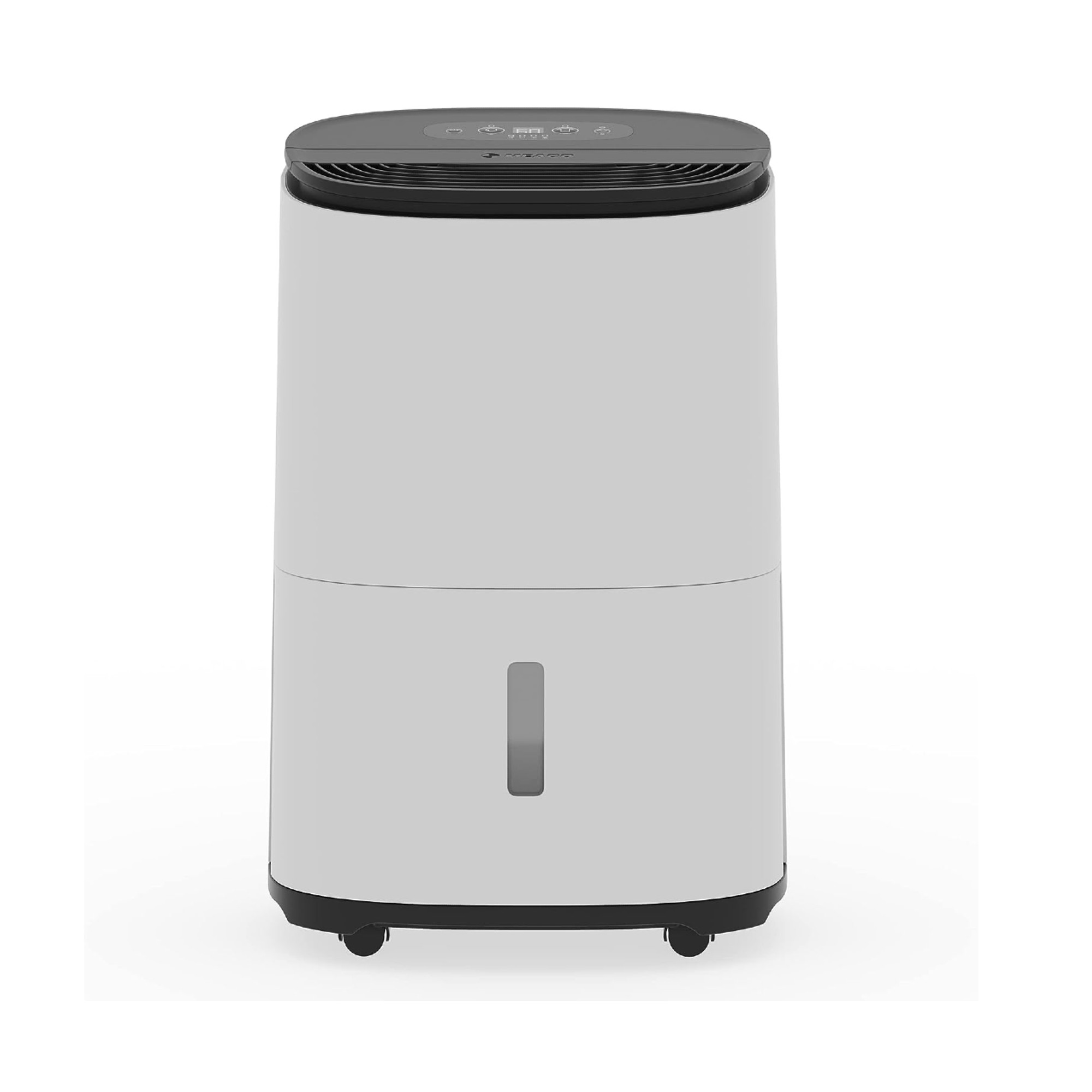
Are you looking for both an air purifier and a dehumidifier? The Meaco Arete One Dehumidifier & Air Purifier has you covered. If you are suffering from the ill effects of mould for example, the dehumidifier will help remove the excess moisture from the air, while the air purifier will help remove impurities.
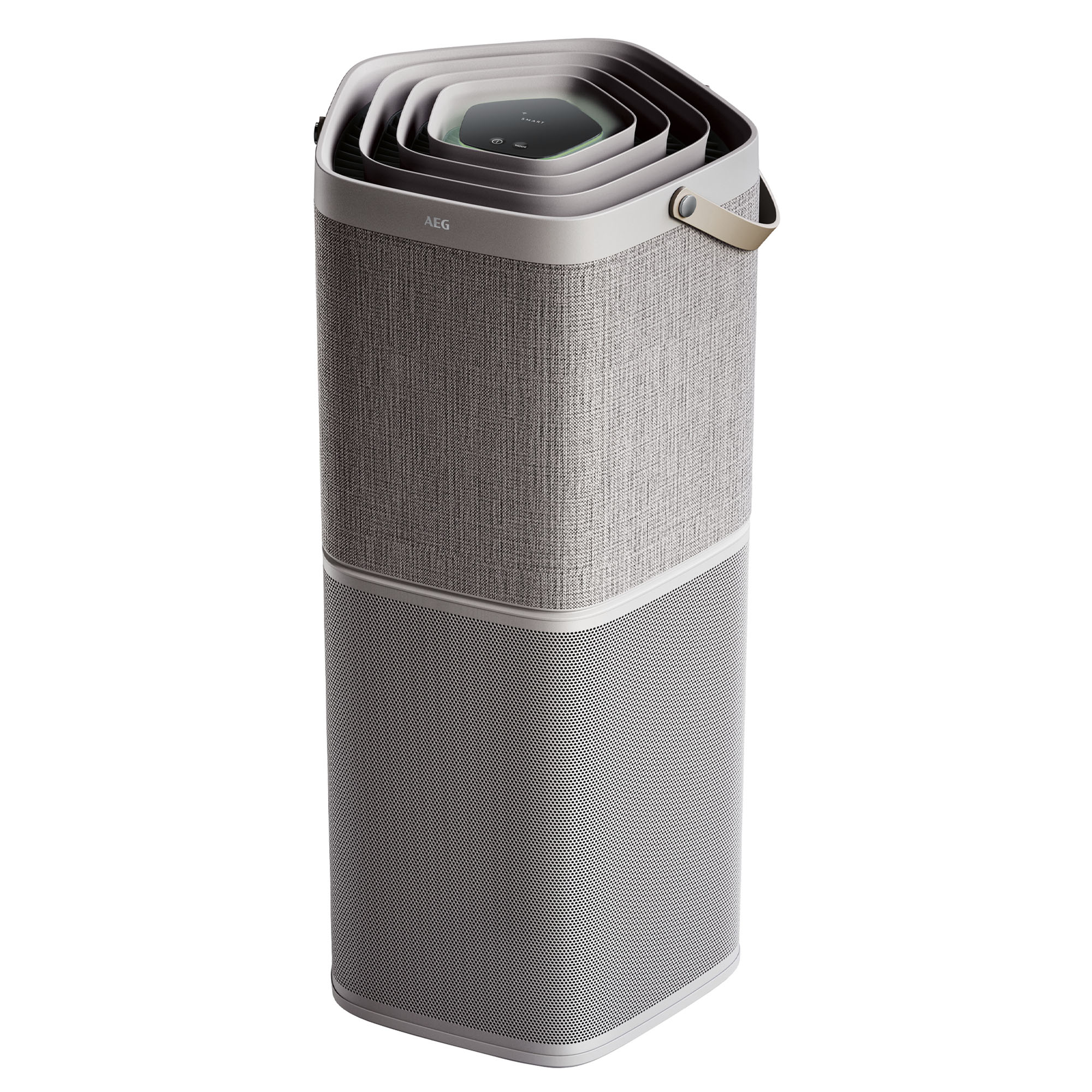
The AEG AX91-604GY Connected Air Purifier has got your back when it comes to keeping a large home's air filtered. Offering multiple filter types, it includes a 5-stage Pre-filter, Antibacterial Layer, Pre-charged True EPA12 Filter, Active Carbon, and Ionisation.
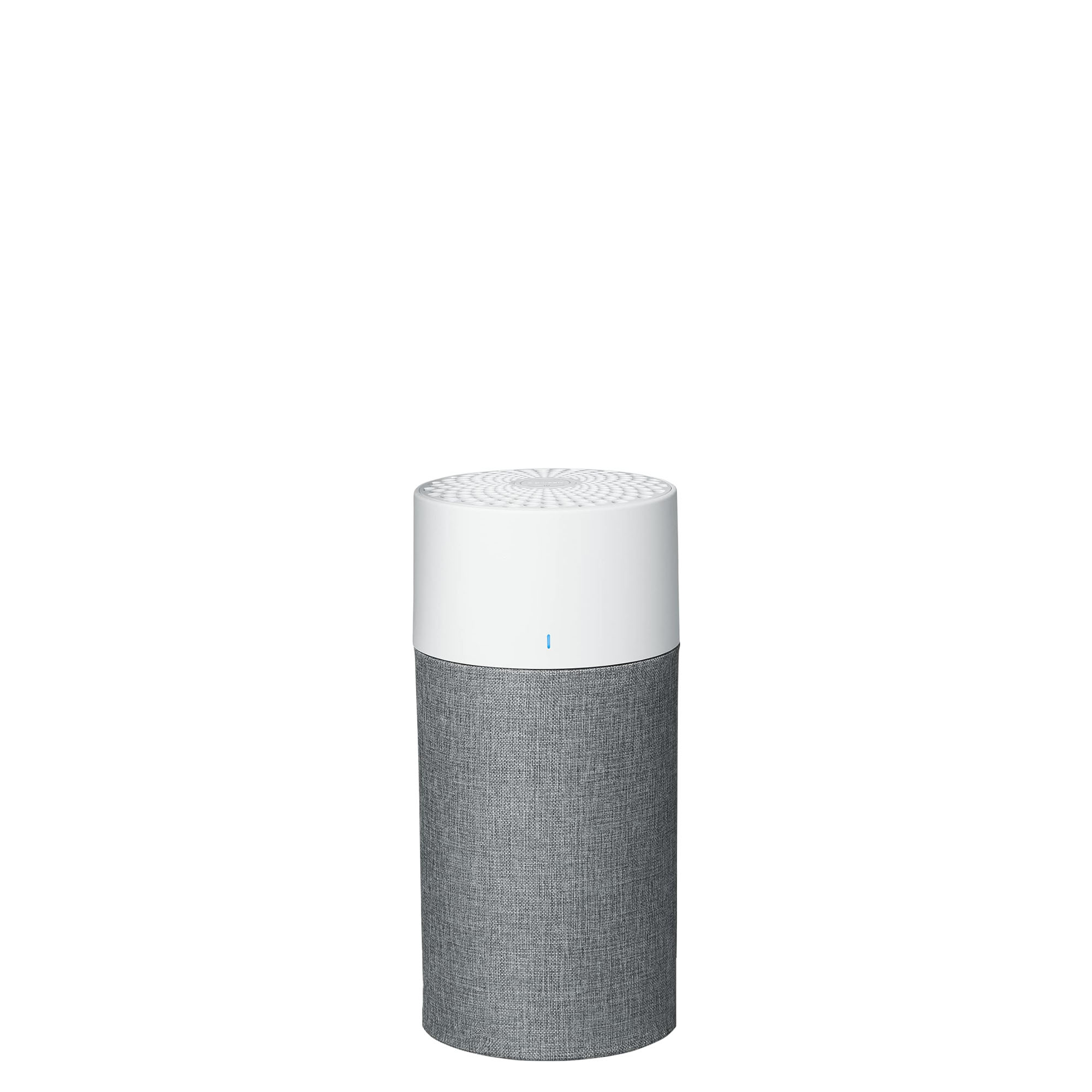
The Blueair Blue 3210 Air Purifier is one of the cheapest air purifiers around, at a bargain price of £99. However, it's no less impressive than any of our other preferred air purifiers. It features an auto mode meaning it automatically turns on and off as air quality fluctuates.
FAQs
What features are most important to consider when buying an air purifier?
When buying an air purifier, the most important thing to understand is your specific needs for purchasing one. Make sure you opt for models with certain filters to best assist your needs, consider the size of the model in relation to where you plan to place it, and its noise levels.
As a general rule of thumb, keeping these immediate three factors in mind will help you make an informed decision before buying an air purifier.
What to avoid in air purifiers?
Where possible, it's best to avoid air purifiers that generate ozone. For domestic use, it's recommended to opt for models that don't produce ozone because this can be very harmful to human lungs when inhaled – which is the opposite effect we're attempting to achieve from investing in an air purifier in the first place.
There you have it, the top things I wish I'd known before buying an air purifier. So long as you pay mind to the above considerations, you can rest assured that you're making an informed investment that won't disappoint and will make a positive difference in improving the indoor air quality of your home.
Get the Ideal Home Newsletter
Sign up to our newsletter for style and decor inspiration, house makeovers, project advice and more.

Jullia was Ideal Home’s Junior Writer from 2022-2024 and the Ideal Home Certified Expert in Training on Vacuums having spent over 60 hours testing different models. She’s always loved all things homes and interiors, graduating with a bachelor’s degree in Architectural Studies from the University of Nottingham where her love for writing blossomed following her internship at ArchDaily. Now focused on home tech and cleaning, Jullia works on writing features and explainers to help people make the most of their home appliance investments, putting the newest launches through their paces. When she isn’t writing, she loves exploring the city, coffee shop hopping, and losing hours to a cosy game or book.
-
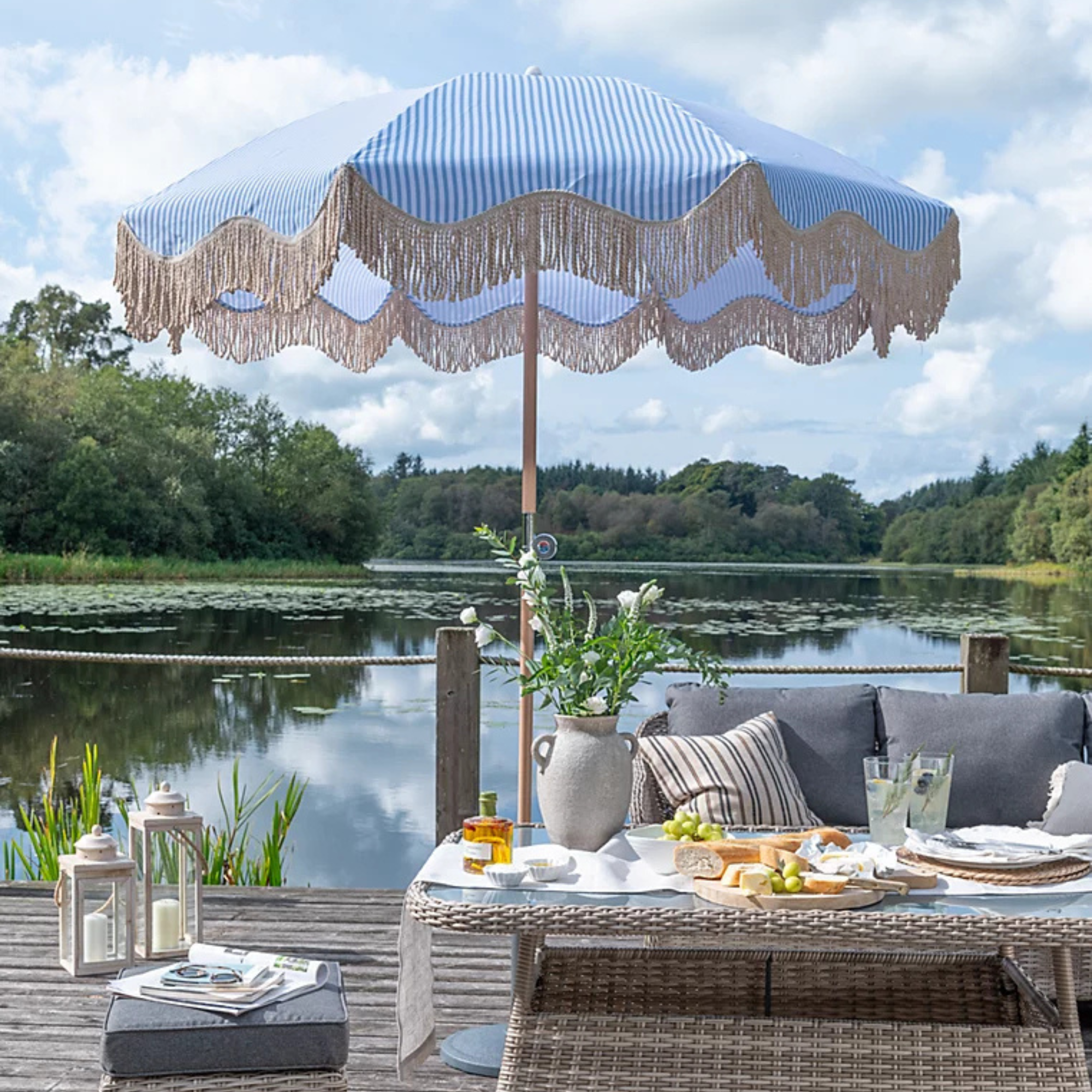 George Home’s sold-out striped parasol is finally back in stock - but this elegant design is expected to sell out again fast
George Home’s sold-out striped parasol is finally back in stock - but this elegant design is expected to sell out again fastI can't get enough of its whimsical design, too
By Kezia Reynolds
-
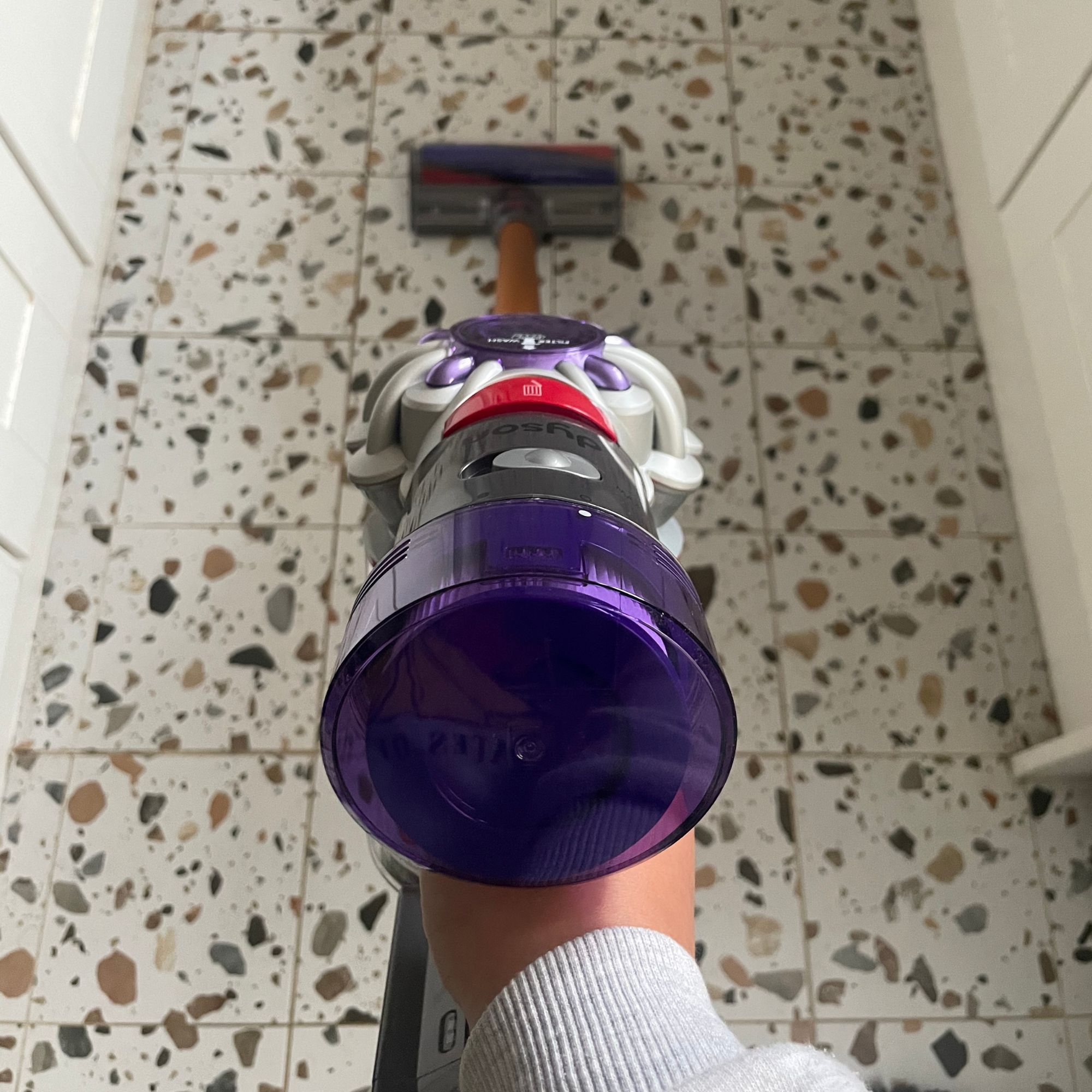 I asked a Dyson engineer how you can avoid these common Dyson vacuum cleaner problems — and how to make the most of your machine
I asked a Dyson engineer how you can avoid these common Dyson vacuum cleaner problems — and how to make the most of your machineFrom a loss of suction to poor battery life, I asked the questions to get the answers you need
By Lauren Bradbury
-
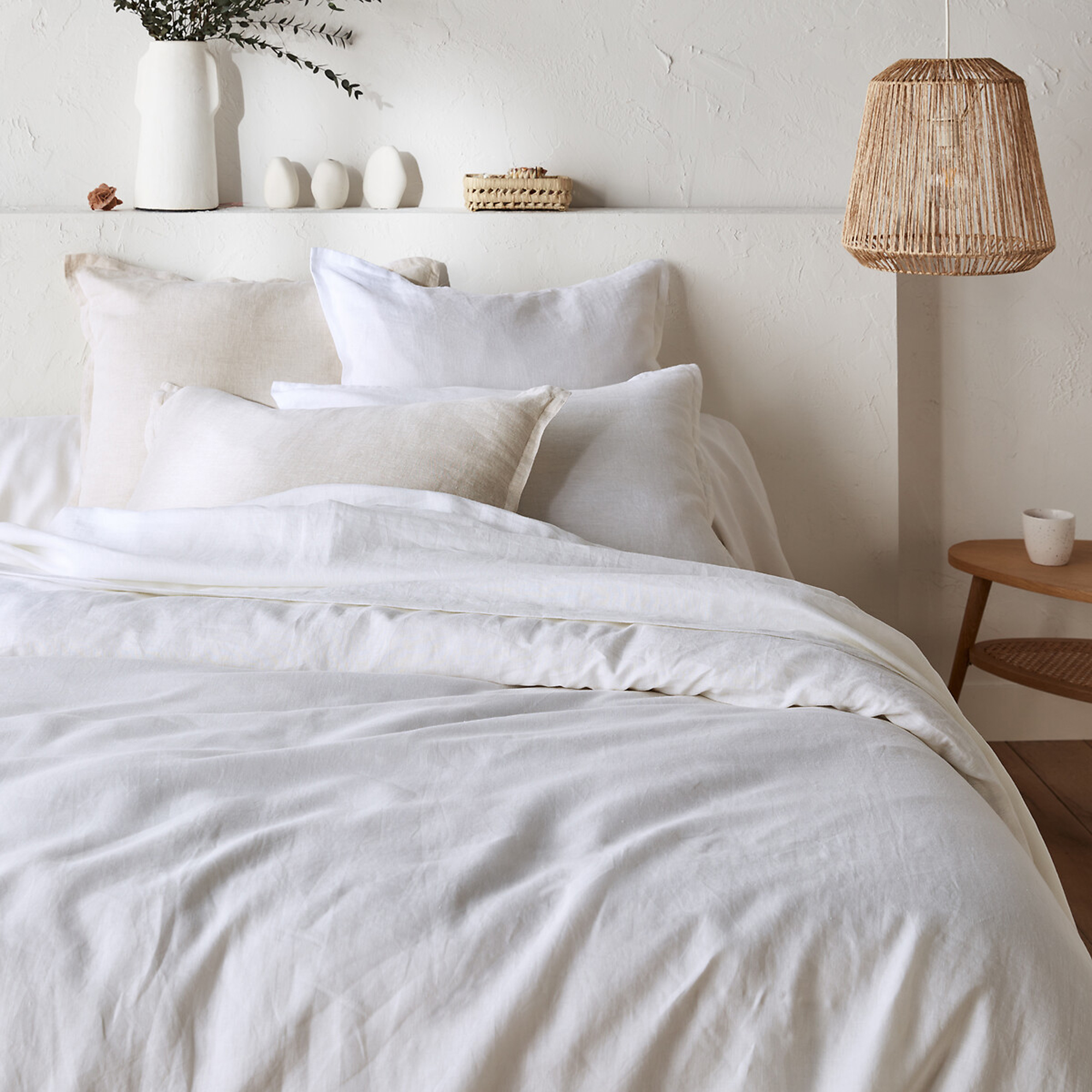 'I've now bought 3 different colours' – my favourite affordable linen bedding is currently half-price, and the 5-star reviews speak for themselves
'I've now bought 3 different colours' – my favourite affordable linen bedding is currently half-price, and the 5-star reviews speak for themselvesThe half-price linen bedding that owners can't stop raving about
By Amy Lockwood